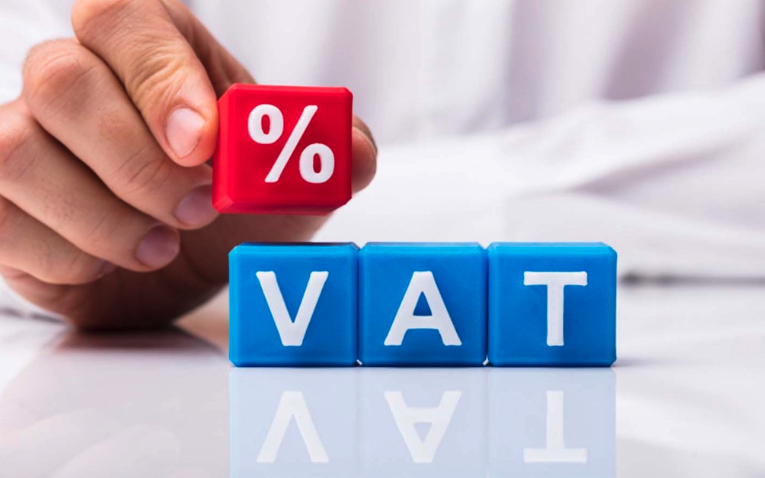If you’re involved in real estate in Dubai, understanding VAT (Value Added Tax) is crucial. Whether you’re a property owner, developer, or investor, knowing how VAT impacts your transactions can save you money and keep you compliant with UAE VAT law. This guide will break down the essentials of VAT in the Dubai real estate sector, explaining everything from VAT rates to how different types of properties are affected.
What is VAT?
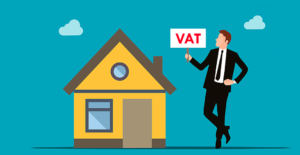
VAT stands for Value Added Tax. It is a tax on goods and services. In the UAE, VAT started on January 1, 2018. The standard VAT rate is 5%.
What is the VAT Rate Applicable to Different Types of Real Estate?
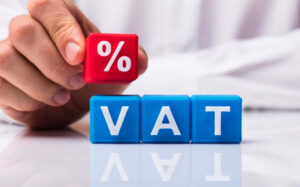
In the Dubai, UAE, VAT is generally set at 5%, but its application to real estate varies depending on the property type and transaction nature. Here’s a information table of how VAT applies to various real estate transactions:
| Type of Property | VAT Rate | Details |
|---|---|---|
| New Residential Property | 0% | First supply within three years of completion is zero-rated. |
| Existing Residential Property | Exempt | Subsequent supplies or leases are generally exempt from VAT. |
| Commercial Property | 5% | Applies to sales and leases. VAT on purchases can be reclaimed by VAT-registered businesses. |
| Charitable Buildings | 0%/5% | First supply is zero-rated; subsequent supplies are subject to 5% VAT. |
| Bare Land | Exempt | No VAT unless it is developed land (then 5%). |
| Mixed-Use Properties | 0%/5%/Exempt | Residential part zero-rated or exempt; commercial part subject to 5% VAT. |
| Designated Zones | Out of Scope | Transactions in designated zones may be outside the scope of VAT, subject to specific conditions. |
Different Types of Properties in Dubai, UAE

Dubai’s real estate market is vast and varied, encompassing everything from luxurious residential villas to towering commercial skyscrapers. Here’s a quick overview of the different property types you might notice:
-
Residential Properties: These include single-family homes, apartments, and townhouses. Residential properties are typically exempt from VAT after the first supply, making them attractive to buyers looking for a home.
-
Commercial Properties: Offices, retail spaces, warehouses, and other properties used for business purposes fall under this category. Commercial properties are subject to the standard 5% VAT rate.
-
Mixed-Use Properties: These are buildings that combine residential and commercial spaces. For example, a high-rise with retail outlets on the ground floor and apartments above. Mixed-use properties have unique VAT implications depending on the use of each section.
-
Charitable Buildings: Properties used exclusively for charitable activities, which can benefit from zero-rated VAT on the first supply.
-
Bare Land: Unimproved land with no buildings or infrastructure. Bare land is generally exempt from VAT unless it is sold for development, in which case VAT may apply.
How Does VAT Affect the Real Estate Sector?
VAT has a significant impact on the real estate sector in Dubai. Here’s how it affects various aspects:
-
Costs: For commercial properties, VAT adds an additional 5% to the purchase price or rental value. While VAT-registered businesses can reclaim this cost, it still affects cash flow and pricing strategies.
-
Compliance: Real estate businesses must ensure they comply with VAT regulations, including proper invoicing, timely VAT returns, and correct VAT treatment of transactions. Non-compliance can lead to penalties.
-
Market Dynamics: VAT exemptions and zero-rating for residential properties can make them more appealing to investors and homebuyers, potentially driving demand in this segment.
-
Profitability: The ability to reclaim VAT on commercial property purchases and related expenses can improve profitability for businesses, but only if they manage their VAT obligations correctly.
VAT on Commercial Property in UAE
For businesses dealing with commercial real estate, get knowledge about VAT is essential. All sales and leases of commercial properties in Dubai are subject to the standard 5% VAT rate. This applies to offices, shops, industrial units, and other properties used for business purposes.
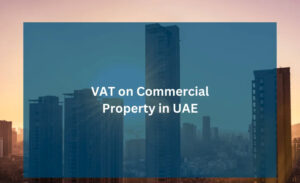
Key Points to Remember:
-
VAT Reclamation: If your business is VAT-registered, you can reclaim the VAT paid on commercial property purchases and related expenses, such as maintenance and utilities.
-
Ongoing Costs: Leasing a commercial property will also incur VAT, which should be factored into your budgeting.
How Does The FTA Define Commercial Properties?
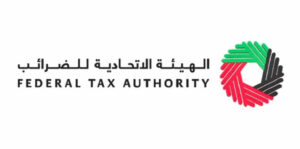
The Federal Tax Authority (FTA) in the UAE defines commercial properties as any land or building used for business purposes. This includes:
- Office Buildings: Properties used for business operations, such as offices, call centers, or corporate headquarters.
- Retail Spaces: Shops, malls, and other spaces where goods are sold to consumers.
- Warehouses and Industrial Units: Properties used for storage, manufacturing, or other industrial activities.
- Hotels and Serviced Apartments: Unlike standard residential properties, hotels and serviced apartments offering additional services are considered commercial.
If a property doesn’t fall into the residential or charitable category, it’s typically classified as commercial and is subject to VAT.
VAT on Residential Property UAE
Residential properties in Dubai are treated differently under VAT law. The first supply of a new residential building, within three years of its completion, is zero-rated, meaning no VAT is charged. However, any subsequent sales or leases of the property are exempt from VAT.
Understanding Zero-Rating vs. Exemption:
-
Zero-Rating: The first sale or lease of a residential property within three years of its completion is zero-rated. This allows the developer to reclaim VAT on construction costs, reducing the overall cost to the buyer.
-
Exemption: After the first supply, any further transactions involving the residential property are exempt from VAT. This means the seller cannot charge VAT, but also cannot reclaim VAT on related expenses.
How Does The FTA Define Residential Properties?
According to the FTA, residential properties are buildings designed primarily for human habitation. This includes:
- Single-Family Homes: Villas, bungalows, and other homes designed for a single family.
- Apartments: Individual units within larger buildings, used as residences.
- Townhouses: Multi-floor homes that share walls with neighboring units.
- Student Accommodation: Housing specifically designed for students or school pupils.
It’s important to note that properties like hotels, bed & breakfasts, and serviced apartments are not classified as residential because they offer additional services and are therefore treated as commercial.
How is a Mixed-Use Building (Residential and Commercial) Treated for VAT?
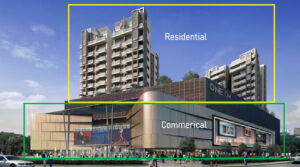
Mixed-use buildings, which contain both residential and commercial units, have a unique VAT treatment. Here’s how it works:
-
Residential Portion: The sale or lease of the residential part is treated as zero-rated if it’s the first supply within three years of completion. Subsequent supplies are exempt from VAT.
-
Commercial Portion: The sale or lease of the commercial part is subject to the standard 5% VAT rate.
-
VAT Recovery: Developers can recover VAT on the construction costs associated with both the residential and commercial parts of the building, but they must accurately apportion these costs based on the use of each section.
VAT Registration
If you are involved in real estate transactions, you may need to register for VAT. Here’s when you need to register:
- If your taxable supplies and imports exceed AED 375,000 in a 12-month period, you must register for VAT.
- If your taxable supplies and imports exceed AED 187,500, you can voluntarily register for VAT.
Filing VAT Returns
Registered businesses must file VAT returns. VAT returns are usually filed quarterly. Here’s what you need to do:
- Keep accurate records of all transactions.
- Calculate the VAT collected on sales and the VAT paid on purchases.
- Submit the VAT return to the Federal Tax Authority (FTA).
- Pay any VAT due to the FTA.
Penalties for Non-Compliance

Failing to comply with VAT regulations can result in penalties. Here are some common penalties:
- Late registration for VAT can result in a penalty of AED 20,000.
- Late filing of VAT returns can result in a penalty of AED 1,000 for the first time and AED 2,000 for subsequent times.
- Errors in VAT returns can result in penalties up to 50% of the unpaid VAT.
Understanding VAT in Dubai’s real estate sector is crucial for anyone involved in property transactions. Whether you’re buying a home, investing in commercial property, or developing a mixed-use building, knowing how VAT applies can help you make informed decisions and avoid costly mistakes.

Ahmed bin Rashid, a seasoned travel enthusiast and visa process expert and the successful Businessman in Dubai. With an LLB from the University of Bolton in 2015, he combines his legal knowledge with his passion for exploration, offering invaluable insights into Business formation and visa processes around the globe. Follow Ahmed’s captivating journeys and expert advice to embark on your unforgettable adventures & Business.

